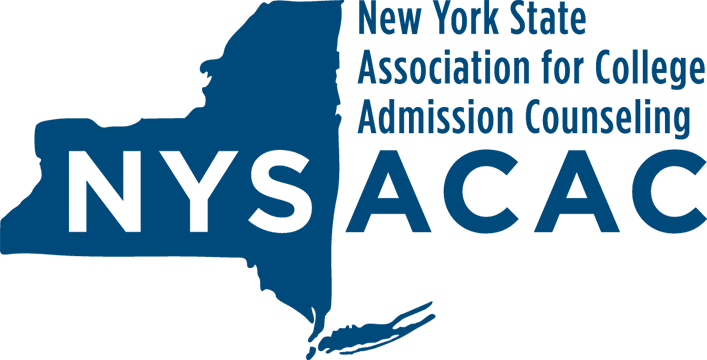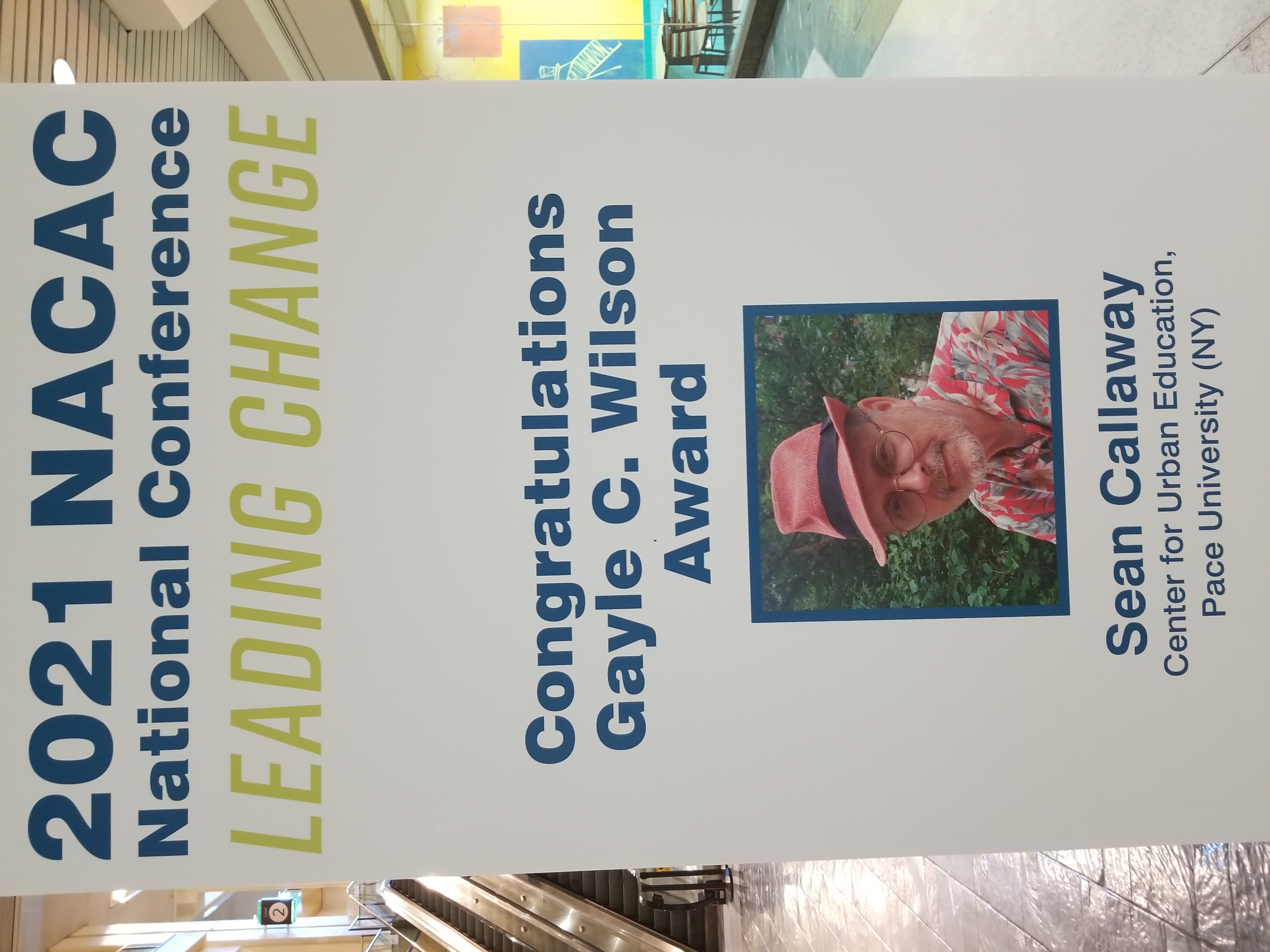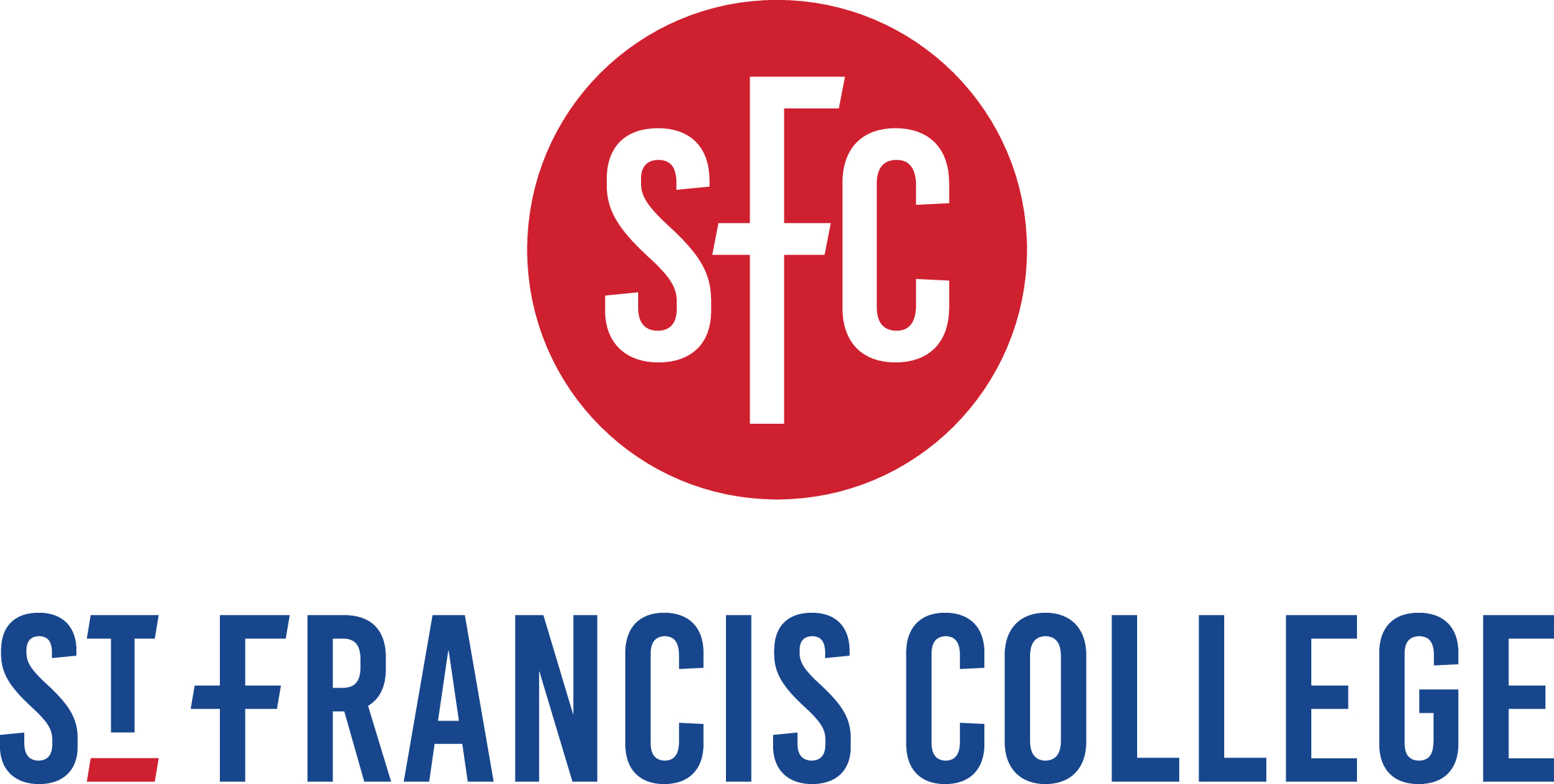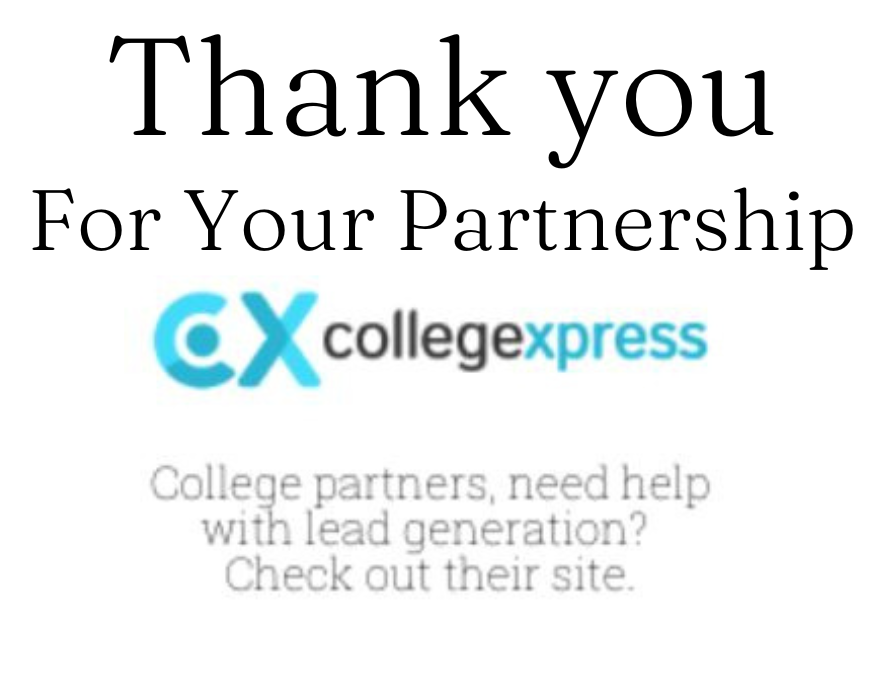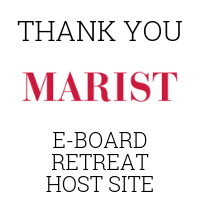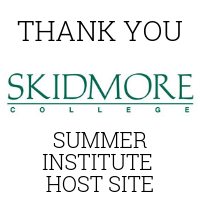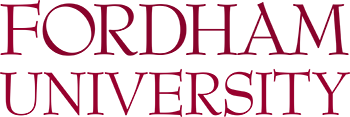- Home
- About
- News
- Government Relations
- Professional Development
- Community Outreach
- Donate
- Membership
|
Marie Nocella (she/her), NYSACAC President Dear Colleagues, I hope you are well as we continue to work and live through stressful times. As the school year gears up, I know we are all busy. Thank you for taking the time to read the newsletter!
While much has changed, the importance of the work we do remains. I am thankful for NYSACAC bringing us together to support our students and each other. Have a great fall season! Marie Nocella (she/her) Associate Director of Admission Sarah Lawrence College Conference Update: It Starts With You Chris Doyle, NYSACAC President Elect
It Starts With You is the theme of the 44th Annual Conference, which will take place at Utica College in June of 2022. The theme is an acknowledgement that you are at the center of this association and the work that’s being done in community based organizations, high schools, college campuses, and home offices across New York. It starts with that first conversation you have with a student in the hallway, or with a parent at a college fair. It starts with the desire to develop professionally in order to be a more valuable resource to your colleagues and office. It starts with you being empathetic and open to hearing your colleagues and students. It starts with you choosing to focus on what’s possible despite the obstacles that present themselves—and there have been plenty of obstacles!
Over 19 months ago, the Governor of New York announced an unprecedented response to the COVID-19 public health emergency and implemented restrictions that changed the way we live, work, and connect with the people in our personal and professional lives. It forced us to adopt a new mindset and to embrace new technologies while trying to keep hold of the personal connections human nature requires to feel connected to something bigger than ourselves. We haven’t had many of those opportunities to connect in person over the last 19+ months, but that time will come again at Utica College from June 7-10th.
Planning is well underway to create a safe space for us to convene and reflect on the changes in our personal and professional lives. Utica’s team, led by Jeff Gates and Jessica Nelson, have embraced the conference theme and are working with us to plan the traditions we’re used to, and to create more time for us to reconnect throughout the conference. There have been moments where getting back to normal has felt abnormal. Once simple rituals like shaking hands have morphed into a confusing guessing game of rock, paper, scissors. Are we shaking hands, bumping fists or bumping elbows? Do I sit next to you or should I sit two seats over? I’m thirsty, but should I say yes to your offer of coffee if I have to take my mask off? Maybe I can drink it through my mask–no, probably not. Having more time to reconnect, in addition to a robust schedule of educational sessions, and the traditions we’re accustomed to will help all of us get back in the groove as we continue moving forward.
As we move forward, we will recognize and celebrate important milestones. This year is our 44th annual conference, the 25th anniversary of Coming Together, and Utica College’s 75th anniversary of innovation and achievement. Most importantly, it is a celebration of you, the members of our association.
It Starts with You is more than a theme; it’s an acknowledgement of your dedication to this profession. It’s also an invitation for you to send me suggestions of how we can make the most of the additional time we’re building in to reconnect. Every idea will be considered and discussed, so please send your thoughts to [email protected]. Chris Doyle
President Elect NYSACAC
Marissa Guijarro, NYSACAC Immediate Past President and Chief Delegate Happy Fall! I hope that you are as settled as possible this year in your professional position and that any personal transitions have gone smoothly, as many of us are back full-time in person at our workplaces. As Immediate Past President and Chief Delegate, I’m happy to report that our board had robust participation at the annual conference of NACAC in Seattle, whether in-person or through virtual means. The Affiliate Presidents’ Council met to discuss issues regarding the NACAC-affiliate relationship, and there was a meeting of the delegates. Our in-person contingent included Marie Nocella, President, Chris Doyle, President-Elect, and Delegates Emmanuel (Manny) Cruz, Danielle (Danny) Robinson, and Bryan Rothstein. From the NACAC perspective, defining the future role of the delegates (without Assembly and the prior preparation and voting responsibilities) continues to be a work in progress. In the meantime, our affiliate has reviewed duties that NYSACAC delegates have performed in the past, such as serving as regional liaisons, including to any graduate counseling and higher education programs, having a presence where possible at regional association counselor events, contributing to the Newsletter, participating in NYSACAC programs, actively participating in the call for nominations, and either submitting or encouraging colleagues to submit session proposals for the upcoming Coming Together and/or Annual Conference at Utica in June, 2022. With the current “to be determined” status from NACAC, for delegates to remain as part of our board structure, it is crucial that we have defined roles and responsibilities that contribute to the vitality of our association. For your information, NYSACAC delegate regional assignments for the 2021-22 year are as follows: Western NY: Annemarie Cervoni and Sheryl Kavanagh Southern Tier: Angela Herrera-Canfield and Lisa Searle Finger Lakes: Erica Padilla Central New York: Emmanuel (Manny) Cruz Mohawk Valley: Chris Doyle North Country: Mark Mason and Danielle (Danny) Robinson Capital Region: Darnell Douglas and Abbey Massoud-Tastor Mid-Hudson: Chris Doyle, Marissa Guijarro, Marie Nocella Five Boroughs of NYC: Kory McBride and Zee Santiago Long Island: Dave Follick and Bryan Rothstein As we are in a time of change and some ambiguity regarding the future of the delegate role and the NACAC-affiliate relationship, there is substantial opportunity for innovation and increased member engagement at both the affiliate and NACAC level. Thank you for your support of NYSACAC, and the work that you do to promote access and equity for all of our students of New York State. In unity, Marissa Guijarro NYSACAC Immediate Past President and Chief Delegate St. Bonaventure University tabbed to host 2023 NYSACAC Conference
St. Bonaventure University has been selected as the host for the 2023 conference of the New York State Association for College Admission. The annual NYSACAC conference is scheduled for June 6-9, 2023. “We’re so proud to be partnering with NYSACAC to host this annual gathering and professional development opportunity for high school and college admissions counselors in New York,” said Bernie Valento, vice president for Enrollment at St. Bonaventure. “Our campus has changed with program demand, and has undergone a dramatic, state-of-the-art modernization, including new laboratories, technology and facility upgrades. This has allowed St. Bonaventure to become a leader in fields such as healthcare, the sciences, and business.” Situated in the beautiful Enchanted Mountains between the city of Olean and village of Allegany in southwestern New York, St. Bonaventure is 70 miles south of Buffalo and just 2 miles off exits 24 and 25 on I-86. “Summer is a great time to visit Western New York and there’s so much to do around us,” Valento said. Holiday Valley, a Top 5 four-season resort in the East in charmingEllicottville, New York;Allegany State Park, the largest state park in New York; andSeneca Allegany Resort & Casino are all within 20 miles of St. Bonaventure. For folks coming in early or staying for the weekend, the National Comedy Center,Lucy & Desi Museum, world-renowned Chautauqua Institution, and Southern Tier Brewing Co. are only an hour or less away, and Niagara Falls is just 90 miles to the north. Western New York is also home to more than 40 craft breweries, including Four Mile Brewing Co. just 3 miles from campus. The Regina A. Quick Center for the Arts and a mile-long spur of the 6-mile Allegheny River Valley Recreation Trail are on campus, and the university operates a picturesque 9-hole golf course across the street from the university. A schedule for the four-day conference will be released in late 2022. NYSACAC is the state affiliate of the National Association for College Admission Counseling (NACAC), the only professional association composed of members from secondary schools, community-based organizations, colleges and universities. ______________ About the University: The nation’s first Franciscan university, St. Bonaventure University is a community committed to transforming the lives of our students inside and outside the classroom, inspiring in them a lifelong commitment to service and citizenship. St. Bonaventure was named the #5 regional university value in the North in U.S. News and World Report’s 2022 college rankings edition. Congratulations NACAC Award Winner, Sean Callaway Congratulations to Sean Callaway, long standing NYSACAC member and leader, for receiving NACAC’s 2021 Gayle C. Wilson Award!
Keeping the Conversation Going: Experiences and Thoughts from NACAC’s Antiracist Education Institute on “Understanding Cultural Identity and Microaggressive Office Environments” Karen Archibee & Danny Robinson, WE-WISH SIG Co-Chairs With the return to in-person classes, office obligations, on-campus events and fall recruitment it would seem like we are “back to normal.” April 2021 seems like it is not even in the rearview mirror at this point! However, in the spirit of keeping the conversation going, we felt compelled to share our experiences from attending the third session in the series from NACAC’s Antiracist Education Institute, an opportunity that was provided by NYSACAC. This session, entitled “Understanding Cultural Identity and Microaggressive Office Environments,” focused on microaggressions, identity, and creating inclusivity on campuses. Lawrence Alexander, Director of Diversity, Equity, and Inclusion at Carney Sandoe & Associates, presented and challenged us, as participants, to look at our campuses and practices that continue to marginalize and discriminate against students of color and other disadvantaged populations. That systematically, in post-secondary education, our administrations task us with seeking out and enrolling more and more historically marginalized student populations to attend our institutions. On the institutional level, we often do not do the work to ensure these vulnerable populations feel a sense of belonging when they arrive on our campuses and throughout their college career. The session was presented as an opportunity for admissions professionals to assist in creating more inclusive environments on all levels. Alexander encouraged the participants to continue the hard work of challenging campus practices and ourselves by “interrupting, disrupting and re-imagining.” As part of this, attendees worked in small groups throughout the session and were tasked with exploring the intersectionality and social responsibility of ourselves, both professionally and personally. In each group, we were asked to consider areas of our personal identity that creates what we know as our sense of self. This included gender, race, ethnicity, sexual identity, physical ability, sexual orientation, socio-economic status and age. The activity culminated in various responses by the participants depending on the group conversation and individual experiences with the topic. Some of the takeaways that impacted us the most were tips on how to create brave spaces where we have the opportunity to engage in controversy with civility, owning intention, the impact of our words and actions, and how to call people into the conversation, disrupting the notion of the call-out culture. In August, as part of the Executive Board Retreat for NYSACAC we were asked to speak to the board about our experiences from the session. This led to more than just an overview of what was presented to us, but also an opportunity to engage the board in deeper conversations. To challenge us all to look at our positions within the association and acknowledge the responsibility we hold as leaders within the association in the areas of diversity, equity and inclusion. It is a responsibility of more than just the committees that fall under the VP of Access, Inclusion and Success. Rather, it is all of our responsibilities to continue challenging the industry to create brave spaces and to push our campuses, high schools, and organizations to create welcoming, inclusive environments for all students, staff and faculty from any marginalized background. Let’s all keep the conversation going. Let's acknowledge our blind spots, be open to listening and learning, look at the world from someone else’s perspective, and act. Mindfulness Tips for Busy Counselors Corey Katz, Director of College Guidance, Stella K. Abraham High School for Girls Working with deadlines can be stressful. We move from task to task so quickly there’s rarely time to stop and think. As counselors we are pulled in many directions and often at the same time. After months of moving through my days robotically, I decided it was time to be more mindful of my actions and in touch with my thoughts. There were night time changes and daytime changes. Here is what I did: First I changed how I went to sleep. Most nights I would lie in bed holding my phone, scrolling through Twitter, or playing a word game with the news on the television in the background. Eventually I would put the phone down, take my glasses off and close my eyes, all the while hearing about the horrors going on in the world. The cable news would talk about the hatred in the country, terror attacks, and more. The local news was even worse - talking about robberies, rapes and other vicious attacks. Those were the last things I heard as I drifted off to sleep. I needed to change the information penetrating my final thoughts each day. Rather than feed my mind gory and disturbing images, I decided to start feeding it gratitude. My new process began with proper unwinding. First I took deep breaths in and out until I felt relaxed. I counted slowly to four on the breath in, and again on the breath out. With each exhale I felt my body slow down just a bit. Once relaxed I made a list of the things I was grateful for. There were no right or wrong items. It could be people, feelings, nature, material items, work-related items, etc. As Marie Kondo says, “If it sparks joy to you, it has meaning.” Breathing exercises and gratitude lists helped in the evening, but mindfulness during the day is what I really needed. Implementing daily thought check-ins worked wonders. They can be scheduled or sporadic, but they are vital toward maintaining positivity. Here’s how it works: stop and contemplate your conversations and thoughts since your last check-in. Have your comments to other people been mostly negative or positive? Have your thoughts been mostly pleasant and constructive? Are you pleased with the outcome of your thoughts and words? It is hard to be happy if you are surrounded by negativity. I’m still a work in progress but with my newly implemented breathing exercises, gratitude lists, and daily thought check-ins I feel more in touch with my feelings. We are busy, fast-paced, and overscheduled but without having a moment for ourselves there’s little chance of improvement. Take time each day and each evening to concentrate on being happy and positive. Before you know it, it will be your natural state of mind. Samantha (Sam) Varela has been hired as a new admissions counselor at Lycoming College in Williamsport, PA. Her territory includes the greater NYC area and Long Island. Monica Ibrahim (formerly of EF Academy) and Sara Kratzok (formerly of Avenues: The World School) recently began as the Directors of College Counseling at the French-American School of New York in Mamaroneck. Danny Robinson, SUNY Maritime College and Bryan Rothstein, Hofstra University The Seattle National Association for College Admission Counseling (NACAC) Conference 2021 was a great experience for so many reasons, and the New York State Association for College Admission Counseling (NYSACAC) was well represented, both in-person and virtually. The NYSACAC delegate group met in a hybrid model Thursday morning as a part of the Meeting of the Delegates to discuss one of the more anticipated topics of the conference this year…the role of the affiliate delegates moving forward. We have attended the NACAC National Conference several times throughout our higher education career, but being new to the role of College Delegate, this was our first experience from another perspective. So, although we cannot comment on how this experience may be different from years past, we can express our thoughts as to where we are now. For a quick history lesson, the delegation would meet yearly at NACAC to vote on any changes to the Statement of Principles of Good Practice (SPGP), NACAC Governance, and vote in the new NACAC Board. The role of delegate was to have a voice on behalf of the state affiliates, as nominated and elected voting members. With the recent changes to the membership model of NACAC and the ability for all members to vote within the association, it was clear that there is a lot of work to be done between the regional affiliates and the national association on what the role of the delegates will be within NACAC. At the Meeting of the Delegates, there were opportunities for each regional affiliate to voice what they want to see from the roles, and to listen to the concerns and needs of one another. It gave us all an opportunity to be heard, but with what seemed to be so much uncertainty from all sides, it is clear that this is a chance to work toward better communication between the affiliates and NACAC. This was an eye-opening experience for both of us, one which paved the way for thinking differently. With little knowledge of what the past delegation was like other than observing from the ‘peanut gallery,’ we were both able to see a new perspective and to bring ideas and change to the table for the remainder of our tenure as delegates. We believe that regardless of what the role of delegates becomes in the future, it is clear to us that this is an opportunity for all members to take advantage of the privilege in front of them. We encourage all members to use their voice, invest time to read, learn and research so one can know what they are voting on. Reach out to delegates as a resource, whether in an official or unofficial capacity. As our jobs, roles professionally, and the world continue to evolve, we are excited to see what NACAC has in store. What could become of the delegate's roles? How can we assist in making sure NACAC is hearing what its affiliates are bringing forward? There are a multitude of ad-hoc committees that are created to further assist NACAC in their restructuring—stay tuned for more information to come. NACAC is changing, and our profession is changing. Let’s see how we can continue to affect change as an affiliate and as a loud NYSACAC voice! Roadmap to Growth - Podcast Edition Casey Lang and Casandra Smith, New York State Recruiters, West Virginia University Now that we are back on the road, spending hours traveling and passing time between events, it’s time to download some podcasts! If you want to pay for a service, consider Audible. Looking for something free? Try Stitcher or Spotify. Let’s dive into some podcasts suggestions for keeping yourself informed, updated, and in sync with the world!
It’s going to take some skills, organization, and a mastermind to keep track of your in-person vs. virtual visits this year. So when you are on the road be sure to make the most of your time with these highly rated and suggested podcasts. If you have any other suggestions, please share! Meylin Andares, Director for Diversity, Equity and Inclusion, IOPS, Scholarship Committee Co-Chair Students are continuing to show resilience as they navigate the ongoing pandemic. However, we all know a little help can go a long way. Please forward our NYSACAC Scholarships to any student you think may qualify. We are looking for a freshman, a transfer, and a Camp College participant. For the first time, we are offering the Julia Forman Scholarship in honor of our beloved and passionate friend and colleague. This recipient will demonstrate commitment to social justice and change. Advocating for Ethics: How the Guide to Ethical Practice in College Admission has shifted ownership of ethical advocacy By Mike Campanelli, NYSACAC Admission Practices Committee Co-Chair
As we move into the new normal of voluntary compliance with best practices around ethical behavior, each of us needs to be empowered to advocate for our students and our profession. In each of this year’s newsletters, members of the NYSACAC Admission Practices Committee will review ethical dilemmas. We will look at the key questions to ask in each situation, model potential advocacy approaches for addressing these situations when they arise, and show members where in the Guide to Ethical Practice in College Admission each scenario is addressed. It is important to note that in each of these cases, there is not only one single way to address concerns. Communicating with colleagues and advocating for what is in the best interest of our students is vital to successfully doing this work.
Here is our dilemma: “Cline School provides colleges and universities each year with a school profile document, outlining courses offered annually, grading scales, and historic averages of its previous graduating class. It comes to the attention of an admissions office that data reported on these documents do not reflect the most updated information (submitting previous years’ data, only changing the date range in the header with no changes to reported information from the previous year, and does not accurately portray grading scale details, etc.).“
Some of the key questions in this scenario are:
One possible approach: It is important to give the benefit of the doubt in these particular scenarios because our work should be conducted out of a place of collaboration, collegiality, and trust. Colleges may use the information provided on these documents to understand the context of a school and/or course availability. Incorrect data may directly impact how an applicant is reviewed for admission. An initial step would be to encourage the admissions representative to contact the college counselor to inquire about updated data or confirmation of data. This also provides the additional benefit of relationship-building across the desk. Where in the Guide can you find information related to this dilemma? Section I.A, states: Members should:
Secondary schools should:
In conclusion, while members can no longer be forced into compliance with ethical standards, we must continue to remember their importance. To best serve our students, each of us and our institutions must remain strong and focused on the work in front of us. Ethical norms allow us to do just that, and to benefit all stakeholders in doing so. Robert Alexander, Dean of Admissions, Financial Aid, and Enrollment Management, University of Rochester. Standing in the rain welcoming families on move-in day, I reflected on the magic of the moment they arrived at college, something we once considered routine. The pandemic made the prospect of an in-person semester seem unimaginable for so many new and returning students hoping to enroll at colleges and universities across the state, and across America, this fall. I was struck by their resilience and reminded how special our role is in facilitating this extraordinary educational opportunity. Let’s celebrate our bond as colleagues and friends within this incredible profession. Working each day to help our students find meaning and discern their purpose as they learn and grow as members of our communities of scholars. The pandemic has had devastating impacts, but also provided an unprecedented opportunity to contemplate what’s most important in our lives and work. I’m hopeful that we can seize this moment to help our students, our presidents and our heads-of-school focus on students’ learning and personal growth, perhaps even to de-escalate the college admissions arms race. Of course, we still encourage students to prepare themselves for college by building outstanding academic and cocurricular records. However, we can also individually and collectively emphasize that more important than SATs or GPAs, we also want to understand how they’ve strengthened their character. The admission process seeks to illuminate each applicant’s academic aptitude, extracurricular engagement, and ethical character to determine their capacity to improve a particular campus community and someday, indelibly impact the world at large. Together, we empower students to discover: What they are interested in, and what makes them interesting;what they value; how they have developed themselves and improved their communities; and how they will make the world better. Students have shared with me their worries about what COVID-19 has prevented them from pursuing, and how that might negatively impact their college admissions outcomes. I recognize that too many students, and too many of us, have had family members who became critically ill or died from the virus. Colleges want to understand the losses and pains that unfortunately are integral parts of some students’ experiences, but we also want to hear how those struggles have shaped applicants’ growth and goals for the future. I’ve encouraged students to focus on (and share in their college applications) the insights they’ve gained and the amazing things they’ve done. Maybe it’s not how they expected to spend their time, but most have found more time to consider what truly matters to them and found meaning in all kinds of pursuits. We recognize that many students have family responsibilities, including supervising younger siblings, caring for sick relatives, or working to provide family income that can impede their capacity to engage in school and other activities, and that these responsibilities may have increased during this time. We view substantial family contributions as very important, and encourage students to spotlight them in their resumes and applications. Our admissions committees recognize the extraordinary value of a student working to help supplement family income, the new perspectives they gained from spending more time at home, caring for family members, leadership in the movement for racial equality and social justice, to protect the environment, stop online harassment among peers, and respond to the many needs created by the pandemic’s impacts. As admissions professionals and stewards for our campus communities, we’re looking for students who align with our values, including our commitment to equity, self-care, meaningful learning, and service to others. We recognize that many students and families are dealing with stress of all kinds. We want students to take care of themselves, their families and their communities, in ways big and small. Yes, they need to work hard in school and do their homework! But I hope they’ll also wear their facemasks, eat healthy foods, get enough sleep, and exercise regularly. Why? So they’ll be prepared to do the same when they join our campus communities of scholars and maximize their opportunities to build the knowledge, skills, and experiences to prepare to build a better world. Despite, or perhaps because of, the adversity these students have faced already in their lives, it’s clear that they are intent on tackling the greatest challenges of today and tomorrow. Undaunted by a global pandemic, they desperately want to make a positive impact on our campuses and the world. As college admissions counselors, our hard work makes their dreams possible. Robert Alexander is a native New Yorker and joined Rochester and NYSACAC in June 2020 after previously serving in senior admissions, enrollment, communications, and teaching roles at Millsaps College, University of the Pacific, and Tulane University. The new College Money Matters website supports college-bound students and their counselors Nancy Goodman, Executive Director, College Money Matters Created in response to the student debt crisis, College Money Matters is a 501(c)(3) nonprofit dedicated to ensuring that high school students and their parents have the information they need to make informed decisions about applying, choosing and paying for college. The site is designed for students and families to use on their own, and also functions as a resource that helps make counselors’ jobs easier by providing an informative, ad-free, and privacy-protected site which features games, quizzes, articles, videos and other engaging ways to learn about the college financial aid system and how it works. Topics include the following, and many other highly relevant subjects:
Please visit and refer your students to https://collegemoneymatters.org. And feel free to sign up here for our semi-monthly “quick pick” topics for college-bound high school students, or to contact us for more information. |
